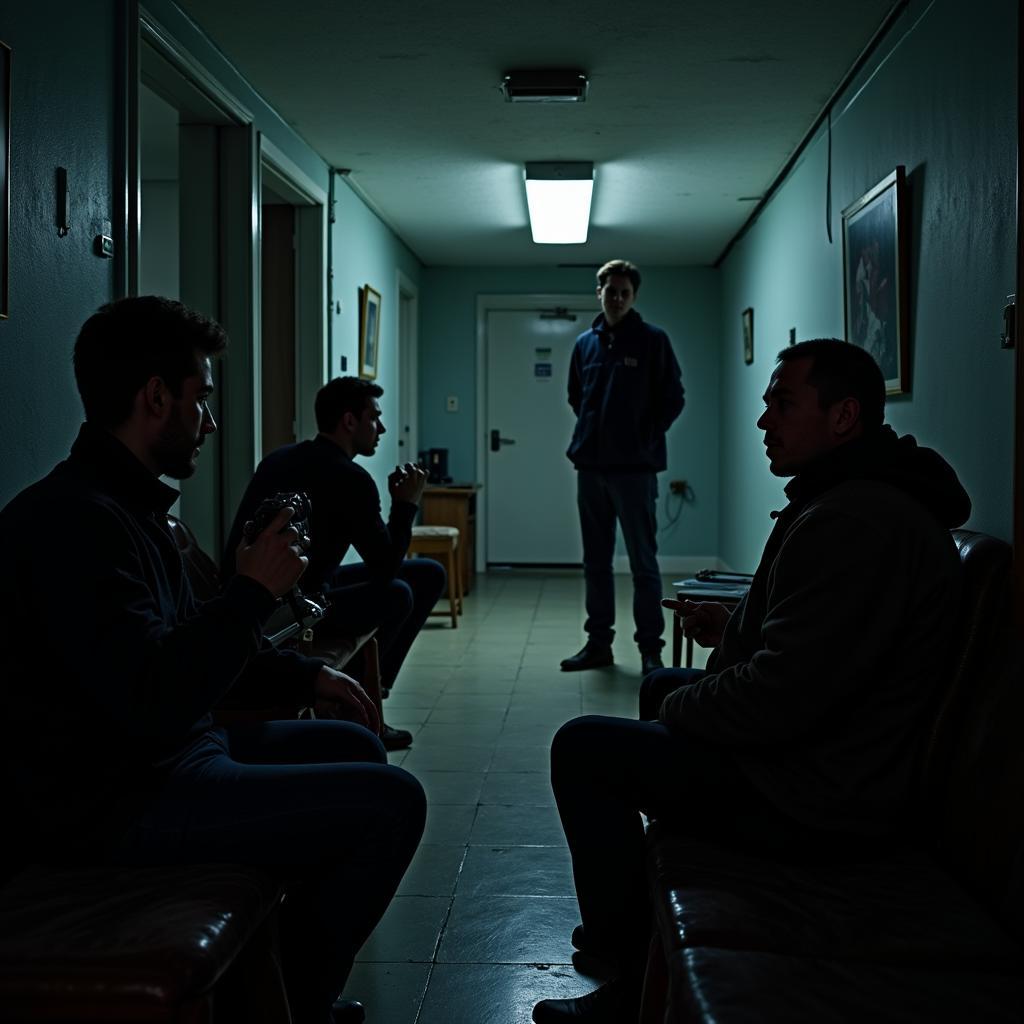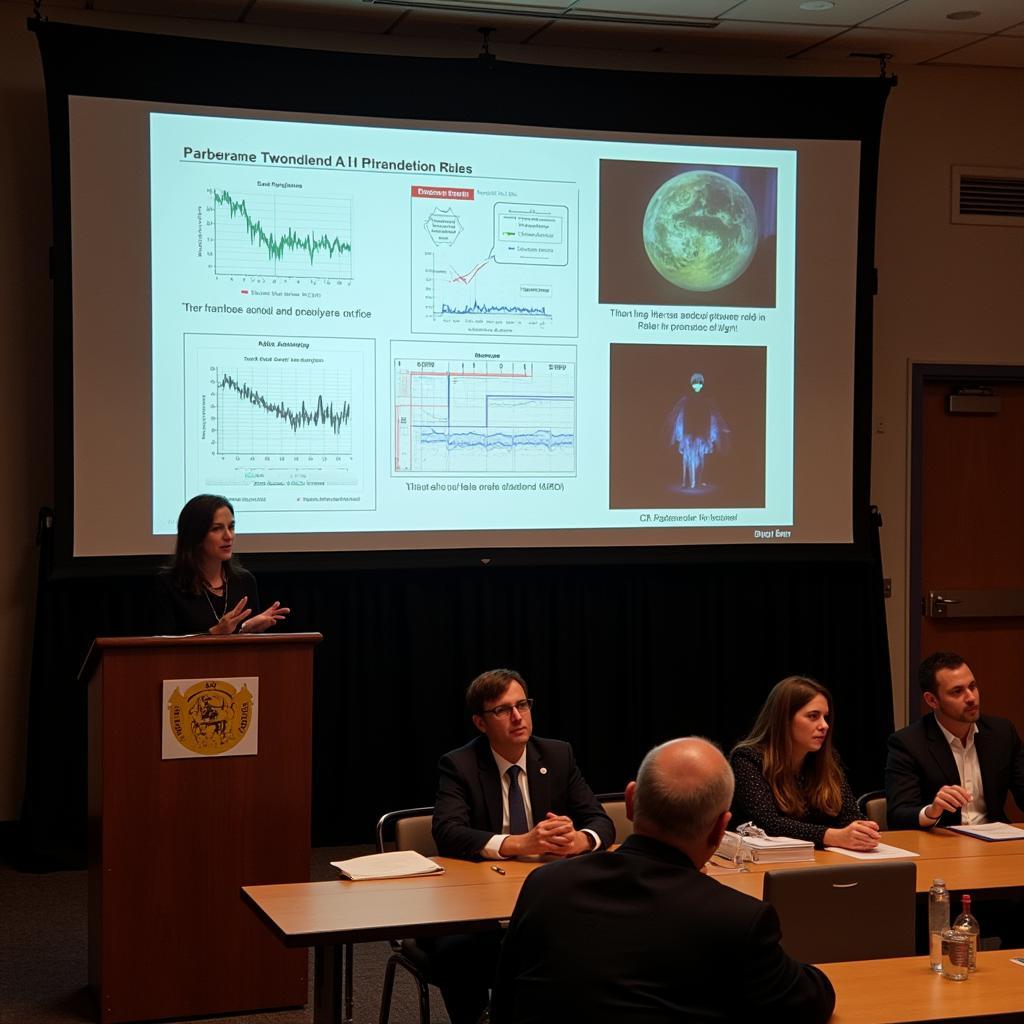Donor Research is a critical aspect of successful fundraising for nonprofits of all sizes. It’s the process of gathering information about potential and current donors to identify the most promising prospects and tailor communications to their interests. But in the realm of paranormal research, donor research takes on a whole new meaning.
Delving Deeper: What is “Donor Research” in Paranormal Investigation?
In the context of paranormal investigation, “donor research” doesn’t always refer to financial contributions. While financial support is crucial for equipment, travel, and research materials, there’s another layer: donors of experiences, information, and locations.
Just as a scientist studies data points, paranormal researchers rely on the generosity of individuals willing to share their stories, haunted artifacts, or access to places with reported paranormal activity. This type of “donor research” is the lifeblood of many investigations, providing the raw material for analysis and understanding.
The Different Faces of “Donors” in the Paranormal
- The Experiencer: These individuals have had firsthand encounters with unexplained phenomena. Their stories, often filled with emotion and vivid detail, are invaluable for researchers. These accounts can range from ghostly apparitions and poltergeist activity to UFO sightings and even alleged alien encounters.
- The Collector: Passionate about the paranormal, these individuals amass collections of objects believed to possess supernatural properties. These collections can include anything from antique Ouija boards and spirit photography to allegedly haunted dolls and objects associated with historical tragedies.
- The Gatekeeper: Owners of properties with a reputation for paranormal activity play a crucial role. By granting access to researchers, they provide the opportunity to gather evidence and conduct experiments in controlled environments.
 Paranormal investigators interviewing a witness
Paranormal investigators interviewing a witness
Ethical Considerations in Paranormal Donor Research
Just like in traditional research involving human subjects, ethical considerations are paramount when working with individuals in the paranormal field.
- Informed Consent: It’s essential to obtain clear and informed consent from individuals before recording their stories, using their real names, or sharing any personal details.
- Confidentiality: Respecting the privacy of experiencers is crucial, especially if they haven’t publicly shared their stories. Anonymity and data protection measures should be implemented.
- Sensitivity: Paranormal experiences can be deeply personal and emotionally charged. Researchers must approach each case with sensitivity, empathy, and respect for the individual’s beliefs, whether or not they align with the researcher’s own.
The Impact of “Donor Research” on Paranormal Investigations
“Donor research” is the backbone of paranormal investigation. Without the willingness of experiencers, collectors, and gatekeepers to share their knowledge, artifacts, and locations, the field would stagnate.
 Presentation on paranormal research findings
Presentation on paranormal research findings
For example, the [Masonic Medical Research Institute] might be able to conduct research on the potential for electromagnetic fields to influence human perception, which could be relevant to the study of paranormal experiences often associated with changes in electromagnetic readings.
By approaching “donor research” ethically and responsibly, paranormal investigators can ensure the integrity of their work while fostering trust within the community they aim to understand. If you’re interested in learning more about paranormal research, you can explore resources like the [Blackbaud Research Point] or consider supporting organizations like the [National Foundation for Cancer Research rating] which funds research into the unknown.
FAQs About Donor Research in Paranormal Investigation
1. What if I want to share my paranormal experience?
Many paranormal research groups and websites welcome individuals to submit their stories. Look for online forms or contact information.
2. How can I find reputable paranormal investigators in my area?
Online directories, paranormal societies, and even local libraries can be good starting points. Always verify the credentials and experience of any group you consider working with.
3. What should I do if I have an object I think might be haunted?
Document its history as best as you can and consult with a reputable paranormal researcher or museum curator.
4. Is it safe to allow paranormal investigators into my home?
As with any service provider, choose reputable investigators who prioritize safety and ethical conduct.
5. How can I support paranormal research financially?
Many organizations accept donations, or you can contribute to crowdfunding campaigns for specific research projects. You can also consider the [Donor Advised Fund Research Collaborative] as a potential avenue for supporting research in this area.
Need Help with Paranormal Research?
Contact us today!
Phone: 0904826292
Email: research@gmail.com
Address: No. 31, Alley 142/7, P. Phú Viên, Bồ Đề, Long Biên, Hà Nội, Việt Nam
We are available 24/7 to assist you with your Paranormal Research needs.